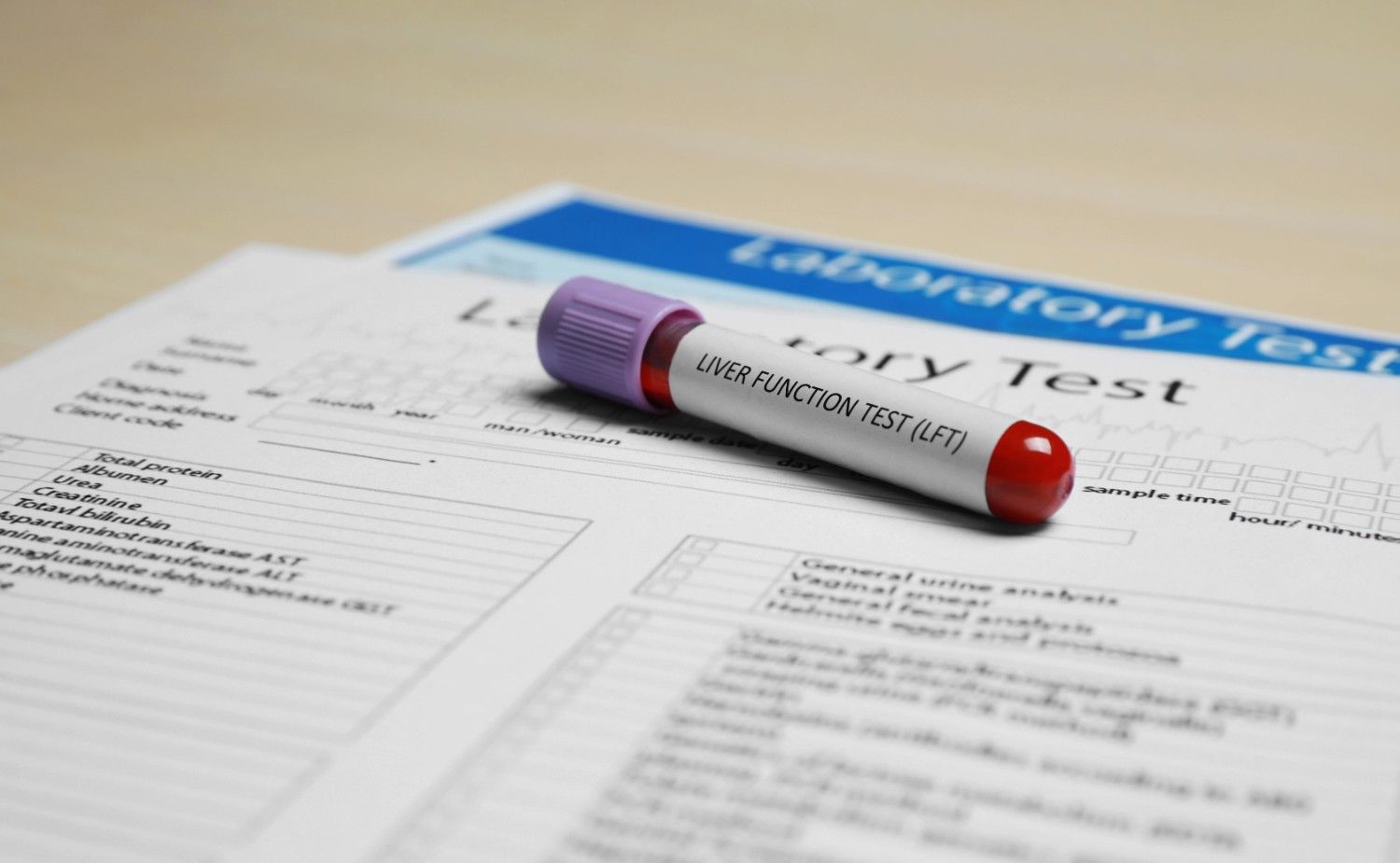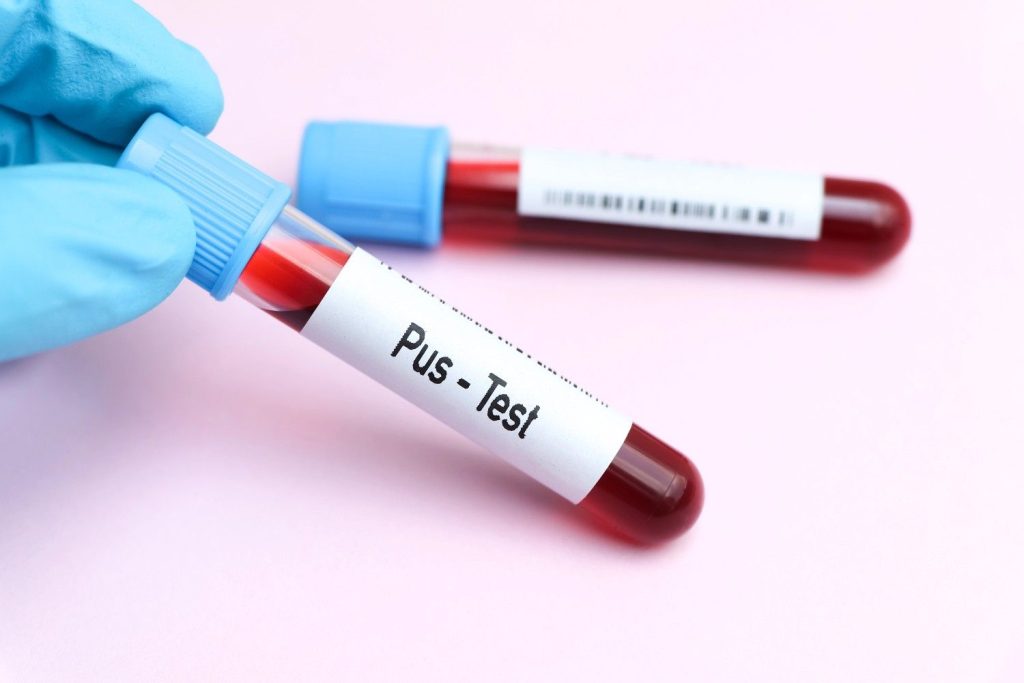How Soon After Sex Can I Test for an STD?
July 30, 2025
If you’ve recently had unprotected sex, experienced condom failure, or had a new or multiple partners, it’s completely normal to wonder: “How soon can I get tested for an STD?” The short answer is—it depends.
STD tests aren’t always accurate immediately after exposure. That’s because every infection has a window period—the time between when you’re exposed and when a test can reliably detect the infection. Testing too early may lead to false negatives, giving you a false sense of security.
In this guide, we’ll break down how long it typically takes for different STDs to show up on tests, why timing matters, and how the Advanced STD Testing & Treatment Clinic in Shenandoah can help you get accurate, confidential results when you need them most.
Whether you’re being proactive or concerned about recent exposure, our team is here to provide clear answers, private care, and peace of mind.
Why Timing Matters in STD Testing
The window period is different for each STD and testing method. Testing too early can provide a false sense of security—a negative result may not mean you’re in the clear, but rather that your body hasn’t produced enough detectable signs of infection yet.
For example, HIV tests detect either antibodies or viral components. Antibodies take time to develop, while RNA (genetic material of the virus) may be detected sooner. Similarly, chlamydia and gonorrhea are caused by bacteria and can often be picked up earlier, but syphilis and hepatitis may take longer.
Getting the timing right ensures the results are meaningful and prevents unnecessary anxiety or delayed treatment.

Detection Windows by STD Type
Below is a detailed overview of the timeframes for detecting common sexually transmitted infections after exposure. This helps you understand when each test becomes reliable.
1. Chlamydia and Gonorrhea
- When to test: 5 days to 2 weeks
- Test type: Nucleic acid amplification test (NAAT), using urine or swabs
Chlamydia and gonorrhea are both caused by bacteria and are often tested together using NAAT, one of the most accurate diagnostic tools available today. The urine-based or swab test can detect even small amounts of bacterial genetic material. Infections can sometimes be detected within just a few days of exposure, but waiting at least a week increases accuracy.
These infections are common and often asymptomatic, especially in women. Left untreated, they can lead to serious complications such as pelvic inflammatory disease, infertility, or increased HIV risk.
Why retesting may be needed: If your first test was taken less than 7 days after exposure and comes back negative, you may need to retest after 2 weeks to confirm results.
2. HIV
- Earliest detection:
- RNA test: 10 to 14 days
- 4th-generation antigen/antibody test: 18 to 45 days
- RNA test: 10 to 14 days
- Retesting recommended: At 3 months for confirmation
HIV is a virus that requires careful timing for detection. The earliest detection is possible through RNA tests, which look for the virus’s genetic material directly. These can detect HIV as soon as 10 days post-exposure but are less commonly used due to cost and availability.
The 4th-generation test, which looks for both HIV antibodies and p24 antigen, is more widely used and becomes reliable about 3 to 6 weeks after exposure. Because HIV antibodies take time to develop, a follow-up test at 3 months is often recommended for definitive results.
Why timing matters: A negative test too early doesn’t guarantee you’re HIV-free. Retesting ensures accuracy and peace of mind.
3. Syphilis
- When to test: 3 to 6 weeks
- Test type: Blood test (RPR, VDRL)
Syphilis progresses in stages, and the early stage (primary syphilis) typically begins with a painless sore or ulcer. However, testing too soon after exposure may miss the infection, as it can take weeks for the body to produce antibodies detectable in blood tests like RPR or VDRL.
If syphilis is suspected based on symptoms (such as a sore or rash), you should test immediately and follow up if the result is negative. Left untreated, syphilis can progress to serious systemic complications, including nerve, brain, and organ damage.
Recommendation: If your initial syphilis test is negative but you had a recent high-risk exposure, get retested at 6–12 weeks.
4. Hepatitis B and C
- When to test: 3 to 6 weeks
- Test type: Blood tests for antigens and antibodies
Hepatitis B and C are bloodborne viruses transmitted through sex, needle sharing, and other high-risk behaviors. The detection of these viruses relies on testing for surface antigens (HBsAg) or antibodies (anti-HCV, anti-HBc) in the blood.
Because these viruses may not show symptoms until serious liver damage occurs, routine testing is important after high-risk exposures. These include unprotected sex with a partner whose status is unknown, or any contact involving blood.
Follow-up tip: Repeat testing at 3 to 6 months ensures no infection was missed during the early incubation period.
5. Herpes (HSV-1 and HSV-2)
- Symptomatic testing (swab): Immediate, during an active outbreak
- Asymptomatic testing (blood test): 4 to 6 weeks after exposure
Herpes simplex virus can be difficult to detect in the absence of visible symptoms. If you have active sores or blisters, a swab test can confirm herpes immediately. However, if you’re not experiencing symptoms but still suspect exposure, a blood test (serology) can be performed after about a month to detect antibodies.
Important to know: Some people never develop noticeable symptoms but can still transmit the virus. Blood tests are useful for long-term partners trying to assess risk, or if you’re entering a new relationship and want clarity.
What If You’re Not Sure When You Were Exposed?
Sometimes, it’s unclear when the exposure happened, or multiple exposures may have occurred. In such cases, a two-step testing approach is best:
- Initial testing now to check for any existing infections.
- Follow-up testing after the full window period of each STD—typically 3 months—to confirm.
This approach ensures that you catch any pre-existing infections as well as new ones that may not yet be detectable. The Advanced STD Testing & Treatment Clinic can work with you to develop a custom testing schedule based on your situation, risk level, and exposure timeline.
Symptoms or No Symptoms: Should You Still Test?
Yes. Many STDs can be completely asymptomatic in their early stages. Just because you feel fine doesn’t mean you’re infection-free. For example:
- Chlamydia is often silent in up to 70–80% of women and 50% of men.
- HIV symptoms may not appear for years.
- Hepatitis C can remain dormant until liver damage occurs.
If you’ve had a new partner, unprotected sex, or any potential exposure, get tested regardless of symptoms. Routine testing is also recommended every 6 to 12 months if you’re sexually active, especially with multiple partners.
When to Retest After Early Testing
Testing early gives peace of mind, but it doesn’t always give the full picture. In many cases, retesting is strongly recommended to ensure accuracy.
Here’s a general retesting guideline:
- At 2 weeks: For gonorrhea and chlamydia after early testing.
- At 6 weeks: For syphilis, hepatitis, and 4th-gen HIV.
- At 3 months: Final confirmation for HIV, syphilis, and hepatitis C.
At the Advanced STD Testing & Treatment Clinic, we remind patients of optimal retest dates and provide support every step of the way to ensure complete and reliable results.
Should I Wait to Have Sex Until I’m Tested?
Yes. If you’ve had unprotected sex and are concerned about potential STD transmission, it’s best to avoid sexual contact until testing and retesting are complete.
Even if you use condoms, certain STDs like herpes, HPV, or syphilis can still be passed through skin-to-skin contact. Waiting until you’re tested and clear ensures that you don’t unknowingly transmit an infection.
Being honest with your partner and prioritizing testing also builds trust and demonstrates responsibility.
Walk-In and Same-Day Testing Availability
We understand that worrying about an STD is stressful—and waiting for testing only adds to it. That’s why the Advanced STD Testing & Treatment Clinic offers:
- Walk-in and same-day appointments
- Discreet, professional testing services
- Confidential results and personal support
- Fast turnaround times for lab results
Whether you’ve had a recent exposure, want routine screening, or are unsure when to test, our clinic provides non-judgmental, accurate, and timely care tailored to your needs.

Same-Day STD Testing in Shenandoah at Advanced STD Testing & Treatment Clinic
When it comes to your health, waiting isn’t an option. That’s why Advanced STD Testing & Treatment Clinic in Shenandoah offers same-day STD testing—so you can get the answers you need quickly, privately, and without the stress.
Whether you’ve had a recent sexual encounter, are starting a new relationship, or just want peace of mind, our clinic provides rapid testing services for a full range of STDs including:
- Chlamydia
- Gonorrhea
- Syphilis
- HIV
- Herpes
- Hepatitis B & C
- And more
Why Choose Same-Day Testing With Us?
- No Waiting Games: Get tested the same day you call or walk in
- Fast Results: Many results available within 24–72 hours
- Complete Privacy: Your visit and results are kept strictly confidential
- Expert Care: Our compassionate team is here to support you with professionalism and respect
- Convenient Location: Serving the Shenandoah community with flexible hours and easy access
Take Control of Your Health Today
When you need answers fast, trust the experts at Advanced STD Testing & Treatment Clinic. We make testing simple, stress-free, and discreet—so you can move forward with confidence.
Call now or walk in for same-day STD testing in Shenandoah. Because your peace of mind shouldn’t have to wait.
Advanced STD Testing & Treatment Clinic Serving the Shenandoah Community and Beyond in Houston
Advanced STD Testing & Treatment Clinic is dedicated to serving the diverse needs of the local community of Houston, including individuals residing in neighborhoods like Shenandoah. With its convenient location near landmarks such as the Academia De Ingles – Quick Learning and major intersections like Southwest Fwy (Toll road) & Hornwood Dr. (coordinates: 29.712207089193782, -95.50416447400343), we offer Same day std test Houston services.
Get Same day std test Houston at Shenandoah Now
Navigate from Shenandoah to Advanced STD Testing & Treatment Clinic Now
Final Thoughts
Knowing when to test for STDs after sex can feel confusing—but it doesn’t have to be. With the right timing and support, you can take control of your health, get accurate answers, and take action if necessary.If you’re unsure where to start or need same-day help, contact the Advanced STD Testing & Treatment Clinic. We’ll walk you through every step—from selecting the right tests to understanding your results—with complete confidentiality and professional care.
Frequently Asked Questions (FAQ)
1. What is the window period for STD testing and why is it important?
The window period is the time between when you’re exposed to an STD and when a test can accurately detect it. Testing too early may result in a false negative because the infection hasn’t yet reached detectable levels. Understanding the window period helps ensure you’re tested at the right time for accurate results.
2. Can I rely on a negative test result if I got tested just a few days after exposure?
Not always. A negative result within just a few days of exposure—especially for infections like HIV, syphilis, or hepatitis—might be too early to detect. It’s often recommended to retest after the full window period or as advised by a healthcare provider.
3. Do I need to get retested even if I don’t have any symptoms?
Yes. Many STDs are asymptomatic, meaning you might not notice any signs of infection. If you were tested shortly after exposure or had a risky encounter, follow-up testing is important—even if you feel fine. Some infections can remain silent for months or years.
4. What STD can be detected the soonest after exposure?
Chlamydia and gonorrhea are among the first to be detectable, usually within 5 to 7 days of exposure using NAAT tests. HIV RNA tests can detect HIV as early as 10 to 14 days, but full accuracy is best achieved after several weeks.
5. Where can I get tested quickly and privately after a possible STD exposure?
You can visit the Advanced STD Testing & Treatment Clinic for walk-in and same-day appointments, confidential results, and expert care. We guide you on the right timing and offer retesting support to ensure accurate diagnosis and peace of mind.
